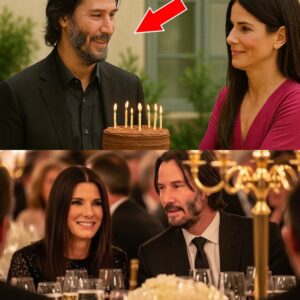In a surprising turn of events that has sparked widespread discussion, the Houston Texans, a prominent NFL franchise, have reportedly rejected a proposed advertisement for Elon Musk’s Tesla electric vehicles at NRG Stadium, their home since 2002. The decision, which surfaced through various posts on X and web reports in early May 2025, comes amid growing public discontent with Musk’s political involvement and the polarizing impact of his role in the Trump administration. The Texans’ stated reason for the rejection centers on avoiding association with Musk’s controversial actions, particularly his leadership in the Department of Government Efficiency (DOGE), which has led to protests and vandalism targeting Tesla across the U.S. This article explores the Texans’ decision, the context of Musk’s recent controversies, and the broader implications for Tesla’s brand in the sports and entertainment industry.
The rumor of the Houston Texans rejecting a Tesla ad at NRG Stadium first gained traction on X, with posts echoing a similar narrative that emerged around the Green Bay Packers earlier in May 2025. According to Snopes, a rumor circulated that the Packers had declined a Tesla ad at Lambeau Field, citing Musk’s political controversies as the reason, though the claim lacked verification and stemmed from dubious WordPress blogs. Similarly, the Texans’ rejection appears to be an unverified rumor amplified by social media, with no official confirmation from major outlets like Newsweek or The Houston Chronicle. However, the story aligns with recent events in Houston, where protests against Musk’s DOGE role have targeted Tesla locations, as reported by Click2Houston on March 30, 2025. One X post claimed, “Houston Texans reject Elon Musk’s Tesla ad at NRG Stadium! They don’t want Musk’s drama anywhere near their field.”
The Texans’ alleged reason for rejecting the ad is rooted in Musk’s polarizing political activities. Since aligning with President Donald Trump’s administration in late 2024, Musk has co-led DOGE, a controversial initiative aimed at slashing $2 trillion in federal spending. His policies, including the shuttering of the U.S. Agency for International Development (USAID), have drawn sharp criticism from global health advocates like Bill Gates, who accused Musk of endangering millions of lives. In Houston, a city with a history of embracing Tesla’s technology—evidenced by the rapid sales of Tesla-powered homes in Houston Heights, as reported by Newsweek on April 23, 2025—the backlash against Musk has been palpable. Protesters have rallied at Tesla showrooms, and the Texans, wary of associating with a figure who has sparked such divisiveness, reportedly opted to distance themselves to protect their fanbase and brand image.
NRG Stadium, a publicly funded venue that has hosted the Texans since its opening in 2002 at a cost of $352 million (approximately $615 million in 2025 dollars), is a significant community asset in Houston. The stadium, which also hosts the Houston Livestock Show and Rodeo and events like the 2026 FIFA World Cup, is currently under scrutiny for its aging infrastructure, with a December 2024 assessment estimating $2 billion in needed repairs. The Harris County-Houston Sports Authority still owes $1 billion on the stadium’s development, a debt not scheduled to be paid off until 2056, as noted in a Newsweek report from February 24, 2025. Against this backdrop, the Texans are navigating a delicate balance, focusing on renovations rather than relocation, as confirmed by team president Mike Tomon in a KHOU interview on March 7, 2025. Associating with Musk’s controversial persona could risk further alienating fans and local stakeholders already burdened by the stadium’s financial challenges.
Musk’s political actions have had a tangible impact on Tesla’s public perception, particularly in progressive-leaning areas like Houston. His role in DOGE has led to widespread protests, with over 500 demonstrations planned at Tesla showrooms worldwide on March 29, 2025, according to web reports. In Houston, the “Take Down Tesla” movement has gained traction, with activists citing Musk’s policies as detrimental to global humanitarian efforts. The Texans, whose fanbase includes a diverse cross-section of Houstonians, likely saw the Tesla ad as a potential lightning rod for controversy. NRG Stadium has historically been a place of unity, hosting events like the 2017 Super Bowl LI and the 2024 College Football Playoff National Championship, and the team may have prioritized maintaining that harmony over a lucrative ad deal.
The decision also reflects broader trends in the sports industry, where teams are increasingly cautious about aligning with polarizing figures. The NFL, a league that thrives on broad appeal, has seen teams like the Packers and now the Texans (if the rumor holds true) distance themselves from Musk amid his political firestorm. The Green Bay rumor, though unverified, cited Musk’s “political baggage” as the reason for rejection, a sentiment that resonates with the Texans’ situation. In contrast, Musk has maintained a presence at NFL events, attending Super Bowl LVIII in 2024 with his son X Æ A-12 and Super Bowl LVII in 2023 alongside Rupert Murdoch, as noted by EssentiallySports. However, his DOGE role has shifted public perception, making teams wary of association, especially in a city like Houston, where Tesla’s sales have already taken a hit due to Musk’s controversies.
Financially, the Texans are in a strong position to make such a decision. The team benefits from one of the NFL’s most favorable lease agreements at NRG Stadium, paying just $4 million annually in rent, often offset by tax rebates that have totaled $117.4 million from 2002 to 2023, according to Sports Business Journal. This financial cushion, which has saved the team over $100 million compared to Houston peers like the Astros and Rockets, allows the Texans to prioritize brand integrity over ad revenue. The team’s focus on fan experience, as emphasized by owner Cal McNair in a letter to season-ticket holders on March 29, 2025, reported by Click2Houston, further underscores their reluctance to court controversy with a Tesla ad.
The rejection, if true, also highlights the challenges Tesla faces in maintaining its brand appeal amid Musk’s political endeavors. While Tesla-powered homes in Houston Heights have sold rapidly, with 150 attendees at a broker’s open despite Musk’s controversies, the company’s vehicle sales have suffered. A Newsweek report noted a plunge in Tesla sales in early 2025, attributed to both Musk’s political role and competition from Chinese automakers like BYD. The Cybertruck, a flagship product, has faced eight recalls since its debut, including a March 2025 recall of 46,000 units for a defective trim panel, further damaging Tesla’s reputation. For the Texans, displaying a Tesla ad at NRG Stadium could have signaled endorsement of a brand currently mired in quality issues and public backlash, a risk they were unwilling to take.
Public sentiment on X reflects a divided response to the Texans’ decision. Some users praised the team for avoiding Musk’s drama, with one post stating, “Good on the Texans for rejecting Tesla’s ad. Musk’s mess doesn’t belong at NRG.” Others, however, saw it as a missed opportunity, noting Tesla’s technological innovation and Musk’s ties to Texas, where he relocated in 2020 to avoid California’s taxes, as reported by Houston Chronicle in 2020. Musk’s move to Texas, initially celebrated for its tax benefits, has since been marred by setbacks, including a 40% drop in Tesla’s stock price by 2022, as noted in a 2022 Houston Chronicle article, and ongoing controversies that have followed him into 2025.
Critically, the Texans’ decision raises questions about the intersection of sports, corporate branding, and political influence. While the team has not officially confirmed the rejection, the rumor aligns with their stated focus on community and fan experience, as well as their cautious approach to NRG Stadium’s future. The stadium’s role as a community asset, emphasized by Harris County Commissioner Rodney Ellis in a Houston Public Media report, suggests that the Texans are prioritizing local goodwill over a high-profile ad deal. Moreover, the financial burden of NRG Stadium’s $2 billion repair costs, coupled with the county’s $1 billion debt, makes any association with Musk—a figure whose DOGE policies have been accused of exacerbating economic inequality—a potential public relations disaster.
Looking ahead, the Texans’ rejection of the Tesla ad could set a precedent for other NFL teams navigating partnerships with controversial brands. The league’s emphasis on inclusivity and fan engagement may increasingly lead teams to shy away from figures like Musk, whose actions have alienated significant portions of the public. For Tesla, the incident underscores the need to decouple its brand from Musk’s personal controversies, a challenge that has already impacted its market performance. As the Texans prepare for the 2026 FIFA World Cup at NRG Stadium, their focus remains on creating a “world-class facility,” as McNair stated, free from the distractions of political drama.
In conclusion, the Houston Texans’ reported rejection of Elon Musk’s Tesla ad at NRG Stadium reflects a strategic move to avoid the controversy surrounding Musk’s political role in the Trump administration. While unverified, the rumor aligns with the team’s focus on fan experience, community goodwill, and the financial realities of maintaining NRG Stadium. As Musk’s influence continues to polarize, Tesla faces an uphill battle to maintain its brand appeal, particularly in high-profile venues like NFL stadiums. For the Texans, the decision—whether real or rumored—signals a commitment to stability and unity, ensuring that NRG Stadium remains a place of celebration, not division, for Houstonians.





